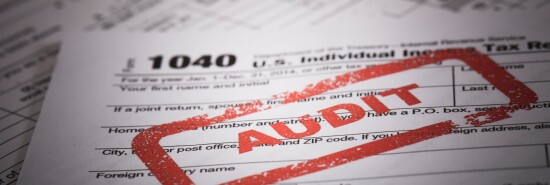
IRS funding battle provides a microcosm of the new class warfare
Timothy P. Carney
Video Embed
Putting more tax police on the proverbial streets has been a top priority of the Biden White House and congressional Democrats. Republicans have fought back, using their leverage in the debt ceiling fights mostly to trim Biden’s IRS increase.
Politics being politics, each side has a very uncharitable — nearly conspiratorial — interpretation of the other side’s actions. But the simplest explanation might be class politics.
OAKLAND LEARNS THAT ‘CRIMINAL JUSTICE REFORM’ MAKES WOMEN EASY TARGETS
Let’s start with the darker explanations.
Conservatives have witnessed the IRS abuse its power for decades. We have seen the Biden administration weaponize many divisions of the federal apparatus against its political enemies. The DOJ abused its power and targeted pro-life protesters on flimsy charges that had already been dismissed by local courts. Biden’s Education Department prodded the National School Boards Association to call in the DOJ to take action against conservative parents they labeled “domestic terrorists.” Biden’s Department of Homeland Security tried to create a Disinformation Governance Board and put a censorious and credulous partisan, Nina Jankowicz, at the helm.
For conservatives, it is not a stretch to imagine that the Democrats want $80 billion in new IRS spending in order to increase the IRS’s ability to target businessmen and nonprofit groups that don’t go along with the Biden administration.
Democrats reject that. They say that the only reason to oppose increased IRS enforcement funding is because you want to make it easier for billionaires to evade taxes. Liberal journalist Matt Fuller most concisely expressed this view when he attributed Republican objections to increased IRS enforcement to the view that “Americans can have a little cheating on their taxes, as a treat.”
(It’s a little odd that liberals, in this age, would assert that only criminals worry about increasing the power of law enforcement.)
Neither of these theories need be true. Democrats are correct that the IRS needs money in order to do its job better. Its computer systems are outdated. Both new programmers and new hardware are needed to accomplish that. Republicans are correct that the IRS abuses its power and that a lot of IRS enforcement amounts to making massive costly hassles for small businessmen who have done nothing wrong.
Between the innocent explanations for both parties’ positions and the conspiratorial ones is a third explanatory framework: It’s all about class interests.
Start with the makeup of the IRS: An IRS employee is overwhelmingly likely to be a Democrat, as campaign contribution data make clear. Congressional and presidential campaigns are required to report a donor’s employment. Thousands of donations each election cycle list “IRS” or “Internal Revenue Service” as the donor’s employer.
According to this data, IRS employees gave about $104,000 to Biden’s 2020 election, twice as much as they gave to Trump’s campaign.
The ratio was even more unbalanced in the 2022 congressional contests. IRS employees gave more than $67,000 to Democratic candidates for House and Senate, compared to $23,000 to Republican candidates.
Consider Ohio’s Senate race. J.D. Vance, the GOP nominee, received $305 from one Philadelphia donor who identified as an IRS clerk (and $515 from an Ohio woman who claimed to be the IRS commissioner). His Democratic opponent Tim Ryan received $9,309 from eight different donors who identified as IRS employees, including a tax examiner and a revenue agent.
This is unsurprising. An IRS employee is a federal bureaucrat. The federal bureaucracy is the perfect home for the managerial class, the beating heart of America’s center-left. The federal bureaucracy is at once immune from the market but lucrative. The federal pay scale respects credentials, and an IRS employee attains power over others through virtue of his position and credentials.
Adding 30,000 employees over the next two years is creating 30,000 more jobs for the managerial class and 30,000 more members of the National Treasury Employees Association, which overwhelmingly supports Democrats, who in turn further empower and enrich the bureaucracy.
It’s about class solidarity and class resentment on the other side, too. The small businessman has become something of a boogeyman for the intellectual Left. “Car dealership owners, fast food franchise owners, landlords,” was how New York Times columnist Jamelle Bouie described the typical Trump Republican.
Sure enough, small businessmen are overwhelmingly Republican. Business owners are nearly twice as likely to call themselves Republicans as Democrats, according to a recent study by the National Small Business Association.
CLICK HERE TO READ MORE FROM THE WASHINGTON EXAMINER
Small businessmen are the most likely to have their life turned upside down by an IRS audit. To a Republican, that looks like a hard-working guy getting hassled by bureaucrats. To a liberal, it looks like justice. High-income people who didn’t go to grad school or prestige colleges (or maybe even never graduated college!) are an affront to the elite liberal view of the world. These people broke the rules of getting ahead in 21st-century America and probably need some enforcement, the thinking goes.
So, this fight over IRS funding isn’t just a normal partisan squabble. It’s a revealing insight into the class warfare of our realigned America.
